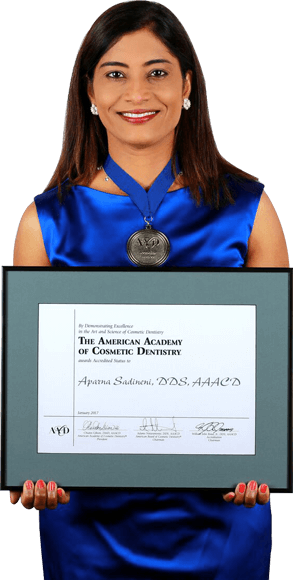 Dr.Sadineni
Dr.Sadineni 
GETTING YOUR WISDOM TEETH REMOVED is such a common procedure these days that it’s almost a rite of passage among teenagers. But why do some of us have to get them out anyway, and why do we even have them in the first place? In today’s blog post we’re going to answer these and a few other common wisdom teeth questions!
The most widely accepted theory about wisdom teeth’s origins goes back to our early human ancestors. Because they had a very different diet–mainly roots, raw meat and fibrous plants–they needed extra molars to grind up tough food. These days, we eat much softer foods. We also have smaller jaws that don’t fit in those third molars quite as well.
While some people never get their wisdom teeth, they’ll show up for most of us between the ages of 17 and 21. Unfortunately, they don’t always come in the way they should, which is why a lot of us have to get them removed.
If your dentist recommends getting your wisdom teeth taken out, it could be for one of the following reasons:
Some dental work may require wisdom teeth removal as well. However, if your wisdom teeth come in correctly and you are able to clean them properly, you will most likely not need to have them removed. And that means that you’ll have some extra molars in your mouth to chew with—awesome!
To facilitate healing after wisdom teeth removal, make sure you get plenty of rest. Drink lots of water and avoid alcoholic, caffeinated and hot beverages for the first 24 to 48 hours. And of course, everyone’s favorite part of the healing process, eat soft foods such as ice cream, yogurt, and applesauce for the first day. You can add in broth-based soups one to two days after the procedure, but stay away from hard or chewy foods for one to two weeks.
We treat wisdom teeth removal on a case-by-case basis. We will monitor them closely as they come in and together, we will make the best decision for your smile! And remember, having your third molars come in may cause some discomfort, but if it causes pain, come and see us immediately.
Do you have any more questions about wisdom teeth? We’d love to answer them! Comment below or on our Facebook page to let us know!
Thank you for placing your trust in our practice!
The content on this blog is not intended to be a substitute for professional medical advice, diagnosis, or treatment. Always seek the advice of qualified health providers with questions you may have regarding medical conditions.
